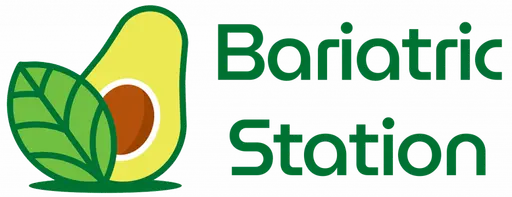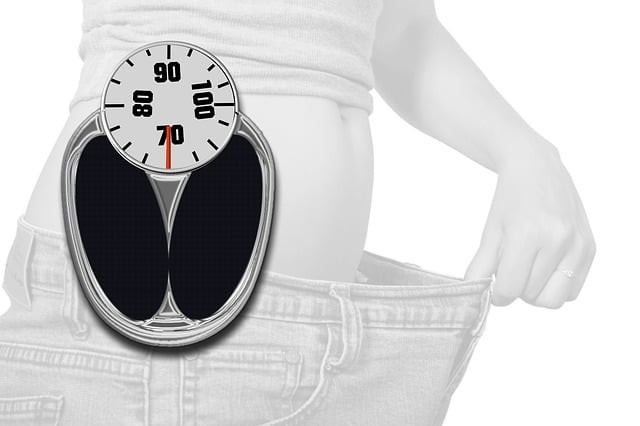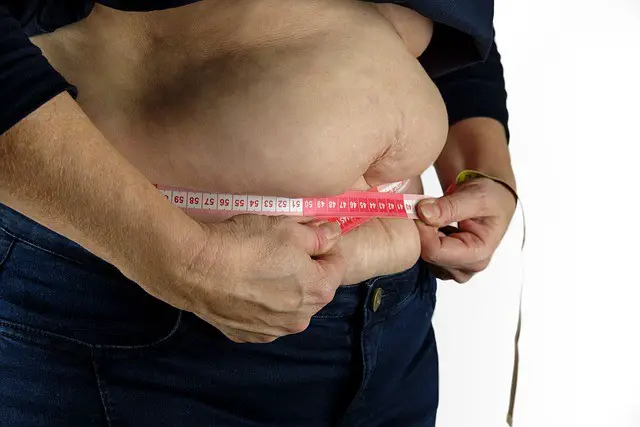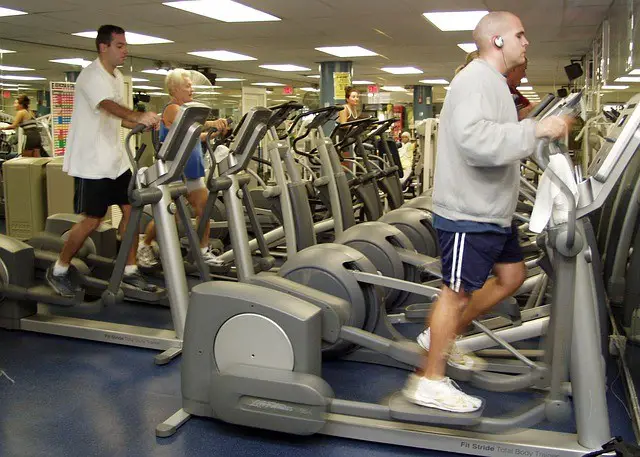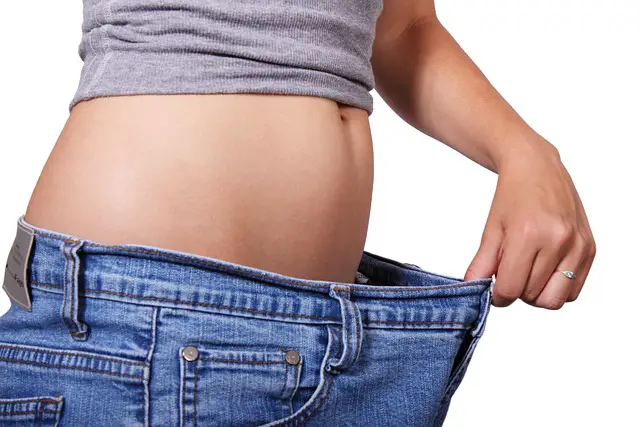Weight loss has been a growing menace in today’s population. If you’re trying to lose weight, you already know you’re not the only one. One to two individuals out of every 5 people are trying to lose weight, using various methods from weight loss diets, exercise, weight loss pills, surgical approaches, and a combination of all.
Some people lose weight quickly using unhealthy methods which have adverse effects on their overall health. These methods are not even sustainable weight loss strategies and lead to weight gain as soon as one stops following the said program.
Rapid weight loss is not healthy. In this article, we will discuss the best fast weight loss program you can follow for steady weight loss. What else can you expect? Healthy weight loss diets can assist with weight management and the role of physical activity in losing weight. Sit back, relax, and enjoy!
Best Weight Loss Program to Lose Weight Fast
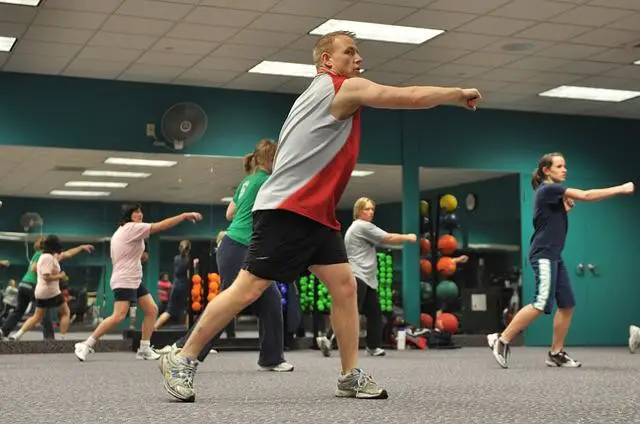
There are millions of weight loss programs in the market today, some effective others not so much. The role of the weight loss program is to come up with a strategic plan for rapid weight loss. But what is a commercial weight loss program?
What Are Commercial Weight Loss Programs?
Commercial weight loss programs are programs whose main goal is rapid weight loss, with resources like rules and regulations to adhere to while on the program, packaged meal plans to suit one’s specific requirements, individual support, and a way to track progress throughout the weight loss program.
Others also include a physical activity schedule to complement your diet for faster shedding of excess weight and body fat.
For weight loss programs to be successful you have to analyze whether pre-packaged meal planning is for you. Does the diet plan meet your needs? Is it feasible for your lifestyle? Most meal plans from commercial weight loss programs require you to plan your meals, and prepare and cook daily. Can your schedule accommodate this?
A point to note with commercial weight loss programs is that they are not reviewed by the Food and Drug Administration (FDA), so they lack third-party backing. Trusting what is written on the program’s website or said by a friend may not be the smartest idea when choosing a program to promote weight loss.
Seek advice from a health coach to get guidance on the right places to look when trying to get the best weight loss programs. Your nutritionist can be the third-party backing for your weight loss programs, so consult with them before starting that promised you a summer body in 2 weeks.
Are Commercial Weight Loss Programs Effective?
A randomized clinical trial to compare the changes in body weight between individuals on a commercial weight loss program and those on a do-it-yourself (DIY) approach concluded in favor of weight loss programs.
Individuals on weight loss programs that require minimum self-monitoring lost more weight than those following the DIY approach. On a weight loss program, individuals experienced an average weight loss of 5% at 3 months and 12 months. At 3 months those on a weight loss program lost 4.1 kgs while those following the DIY approach lost 3.7 kg.
Are commercial weight loss programs effective for losing excess weight? This is highly dependent on you, especially if you’re aiming for long-term weight loss. For long-term weight loss, you may need more than just a healthy diet.
A good mental mindset will go a long in helping you lose weight. Physical activity as part of your weight loss program will increase its efficacy for body weight management.
How to Choose the Best Fast Weight Loss Program
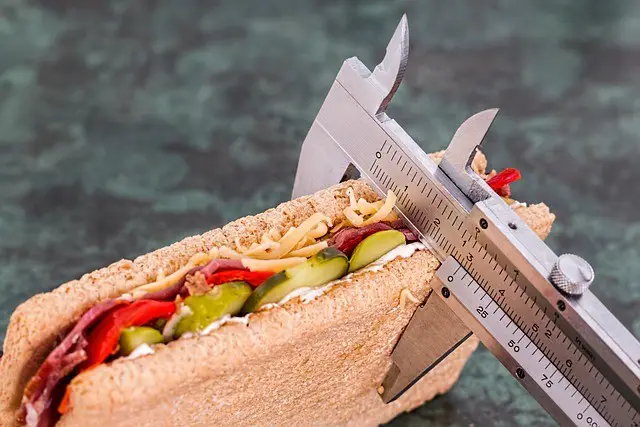
It can get confusing when you are at a buffet with so many meal options and are asked to pick only one! The same applies to weight loss programs! There are too many to choose from and picking one for weight management can feel like a nightmare. I’ve got these tips to look out for when choosing the best fast weight loss program for you.
Quality Over Quantity
To lose weight quickly, most programs focus on calorie restriction. I’m not saying it’s a bad approach, but you have to pay attention to where your calorie intake is coming from. Eat a balanced diet that finds perfect harmony among your macros and does not deprive you of essential micronutrients for optimum body function.
Efficacy and Efficiency
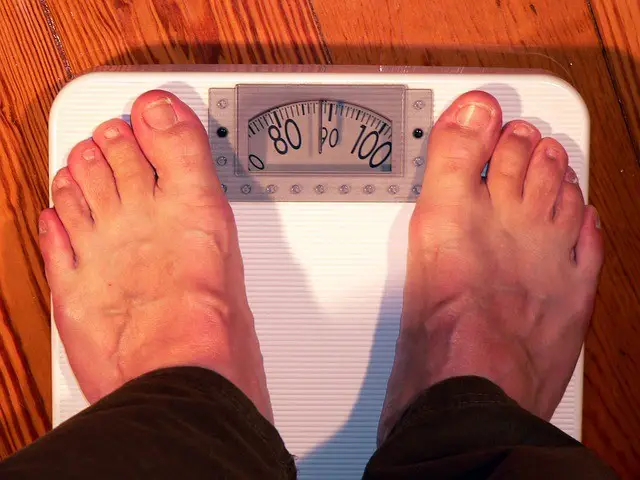
Other than Lisa at work betting her whole income on the effectiveness of a certain weight loss program, is there research that has been done to prove that the program can promote weight loss? Sometimes website reviews shouldn’t be the only thing you go by.
Read studies done on the healthy diet your program follows to see whether it can be efficient for long-term weight loss.
Sustainability
If you cannot stick to them, then they are not the best weight loss programs. Your weight loss program should not be too restrictive and should be easy to stick to. Most weight loss programs are designed for steady weight loss over a long period.
If you are being promised rapid weight loss, are required to do crazy extreme physical activity and fad diets are being prescribed, then that program may be too difficult to sustain and dropout rates are high. Fad diets are extremely low-calorie diets that create a calorie deficit for rapid weight loss.
More Health Benefits
For your program to qualify as the best fast weight loss program, it should have more health benefits than just helping you lose weight. A program can help prevent weight gain but can cause health problems. Pick a diet plan that will benefit your body in all aspects and not cause you any harm.
Third-Party Certified

As mentioned before, weight loss programs do not undergo screening by the FDA. So, ensure your program has undergone studies and the providers have handled any safety concerns arising from their weight loss strategies.
Your doctor can ascertain whether the program causes rapid weight loss which is unsafe and if food intake is adequate for weight loss and optimum body function.
What Diet Works the Best and Fastest?
Weight loss diets are all about calorie restriction to create a calorie deficit that triggers weight loss. Reducing food intake so you do not exceed the number of calories your body needs. Adding physical activity to the picture will increase the number of calories and body fat your body is burning while maintaining muscle mass.
Here are a few diets you can follow to create a calorie deficit to help you lose weight steadily, instead of rapid weight loss that can be unsafe.
Low-Calorie Diets
These are diets that restrict caloric intake to below the recommended intake for adults. Some low-calorie diets extremely restrict calories to cause rapid weight loss. When on a low-calorie diet, ensure your doctor monitors your intake and blood sugar to detect any health problems early. They include:
Intermittent Fasting

Intermittent fasting is a diet that alternates between fasting periods and an eating window.
A study done to investigate the effectiveness of intermittent fasting on metabolic syndrome and weight loss in overweight women showed that IF was effective for weight loss, reduction in leptin levels, total and LDL cholesterol and triglyceride levels, and blood pressure.
Intermittent fasting may not be as effective on its own to bring about significant weight changes because of the high food intake during eating windows. The fasting period will create a calorie deficit, but once you eat a high-carb diet after your fast, glucose levels rise and is broken down for energy. Low-calorie diets are efficient for weight loss but need an additional strategy for weight maintenance.
These are the common types of IF used in weight loss programs:
The 5:2 Diet
In this type of intermittent fasting, you are required to fast for 2 days a week and eat as normal on the remaining five. On fasting days, calorie intake is restricted to 500 calories a day. This study on the 5:2 diet showed that participants can achieve significant weight loss.
Even though you are allowed to follow your normal eating habits after fasting this does not mean highly processed foods and junk foods. With intermittent fasting, you are not restricted on what to eat or when to eat. On fasting days, you are expected to restrict your intake of calories to 500 kcals, so use your calorie limit wisely.
Alternate Day Fasting
Also known as the 4:3 diet, is a low-calorie diet that restricts normal eating habits on fasting days and allows you to eat as usual the next day. The 4:3 diet has more health benefits than weight loss including improved insulin sensitivity, seasonal allergies, menopause-induced hot flashes, and seasonal allergies, and improve and prevent Alzheimer’s, Parkinson’s, and non-insulin-dependent diabetes mellitus. It can also help reduce risk factors of heart disease like blood pressure.
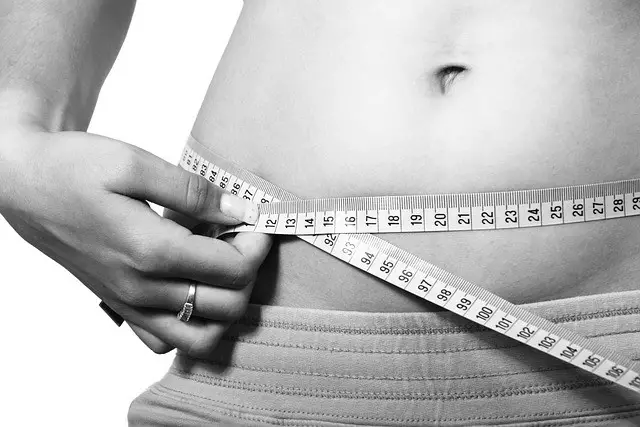
Alternate-day fasting lowers body weight by 3% to 8% over 3 weeks to 6 weeks. Waist circumference reduces by 4% to 7%, an indication that belly fat is lost.
Another study comparing the effects of intermittent fasting and daily restriction of calories provides scientific evidence of the two being effective for weight loss and fat mass reduction, but the IF diet is more effective for retaining lean mass.
The 16:8 Diet
Just like the name suggests, this method of intermittent fasting allows for 16 hours of fasting and an 8-hour eating window. The benefits of this diet include weight loss, reversing aging, and improves blood sugar control.
A large randomized clinical trial to determine the effects of the 16:8 diet plan on weight loss and metabolic risk markers showed that the 16:8 diet helped obese individuals lose weight and improved biomarkers of metabolic syndrome.
Another study was done to investigate the effects of alternate-day fasting and the 16:8 diet on weight loss and the reduction of cardiometabolic risk factors. Reductions in body weight, body mass index (BMI), and waist circumference were more significant in the IF group than in the placebo group. There was a significant reduction in blood glucose which signifies an increase in insulin sensitivity.
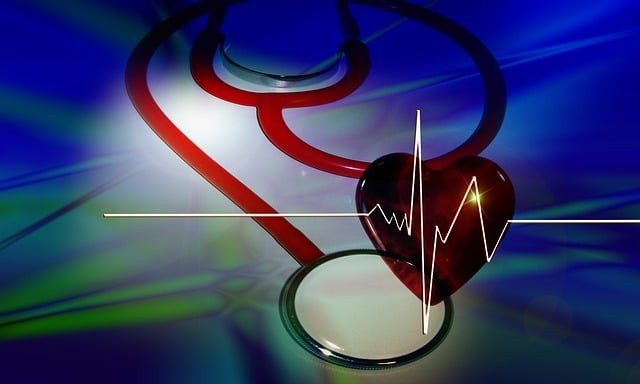
Moreover, triglyceride levels reduced significantly, showing that IF can improve lipid profile. This is evidence that the 16:8 diet can reduce blood pressure and reduce the risk of heart disease.
My advice when on a low-calorie diet would be to practice healthy habits on non-fasting days to avoid spiking your glucose levels which reduced the breakdown of fat in the body. Excess sugar is converted to fat which further promotes weight gain.
Very Low-Calorie Diet
People on a very low-calorie diet consume about 800 kcals a day and expect to lose 3 to 5 pounds a week (1.5 to 2 kg). The main sources of calories on VLCD are soups, shakes, and formulas to give all the nutrients you need while consuming a little calorie.
If you have to lose weight quickly for health reasons, maybe before surgery, then a VLCD is recommended. Only follow this diet if your doctor approves and if they follow up. It is not feasible for long-term weight loss.
Low-Calorie Diet
The difference between this and the VLCD is this one restricts the intake of calories to 1,000 to 1,200 kcals a day to trigger rapid weight loss. You can lose as much weight on an LCD as in VLCD over a longer time.
This method is better because it is possible to sustain over a longer period, and you can consume regular food and replacement meals.
Fad Diets
These are diets that restrict the intake of calories to very low levels, too low to maintain optimum body function. These diets promise you a high amount of weight loss within a very short time which is not safe.
Maintaining weight changes after you stop your fad diet is almost impossible, with higher risks of regaining weight once you go back to your regular eating habits.
Choose low-carb diets that allow for a steady weight loss of 0.5 to 1 pound (225 g to 500g) a week.
Low Carb Diets
On a low-carb diet, carbohydrate intake is limited to 20 g to 50 g a day. Low-carb diets have been shown to have numerous benefits, including improved blood sugar control, regulated hypertension, and improves lipid profile by reducing triglycerides and increasing high-density lipoproteins (HDL).
Studies have shown that consuming a low-carbohydrate diet, low in total carbs, but high in complex carbs, and high in protein and monounsaturated fat leads to weight loss, improved lipid profile, and a significant reduction in waist-hip ratio.
Low-carb diets include:
Low Carb Diet
Carb intake is limited to 50 g to 150 g of carbohydrates a day. A low-carb diet that allows for an intake of 100 g to 150 g of carbohydrates is meant for weight maintenance and gives room for the intake of fruits and some starchy foods like potatoes and whole grains. LCD that limits carbs to 50 g to 100 g restricts the intake of high-starchy foods but allows room for the consumption of fruits and vegetables.
Low Carb, High Fat Diet (LCHF)
This diet reduces carb intake and focuses on getting most of the calories from healthy fats. Weight loss is achieved by switching the body’s source of energy from glucose to fat. Restricting carbs will trigger ketosis, the process of fat breakdown to produce ketones.
The foods consumed in this diet are whole, unprocessed foods like nuts and seeds, fish, eggs, seafood, vegetables, and dairy products.
This diet restricts carb intake to 50 g to 100 g of fats a day and recommended fat intake is 60% of daily caloric intake.
Ketogenic Diet

If your weight loss program incorporates the ketogenic diet as part of its weight loss strategy, then it does qualify as the best fast weight loss program. The ketogenic diet is a high-fat, low-carb diet that limits carb intake to less than 50 g and recommends a fat intake of 70% to 80% of total calories consumed, and 10% to 15% of protein. Weight loss is achieved through ketosis.
There are two types of the keto diet:
- Cyclical ketogenic diet: this type alternates between eating keto on most days of the week and consuming a high-carb diet on the remaining days.
- Targeted ketogenic diet: this one is for those working out because it allows you to incorporate small amounts of carbs into your workout.
The food groups you are allowed to eat from on keto are:
- Low-carb vegetables like bell peppers, asparagus, zucchini, kale, cucumbers, and cauliflowers.
- Nuts and seeds like macadamia nuts, almonds, walnuts, chia seeds, and sunflower seeds.
- Fruits: Berries like blueberries, strawberries, blackberries, raspberries, and avocados.
- Fats and oils: Olive oil and avocado oil rich in monounsaturated and polyunsaturated fatty acids (MUFAs and PUFAs) are allowed.
Oils containing the good type of saturated fat like coconut oil are allowed since they are rich in monounsaturated triglycerides which have numerous benefits to the heart.
- Protein: moderate intake of protein from lean meats, poultry, eggs, seafood, and fatty fish are allowed to prevent the loss of lean muscle.
- Dairy products like cheeses, butter, high-fat cream, full-fat Greek yogurt, and ghee.
- Dark chocolate
- Low carb sweeteners
The foods stated above are considered keto foods. However, there are foods not allowed on the keto diet. Artificially sweetened beverages and condiments, whole grains, sugar, honey, maple syrup, legumes like beans, sugary foods, fried foods, and junk foods are prohibited on the keto diet. These foods can spike your blood insulin levels, inhibiting ketosis and promoting fat storage. They lead to adverse health problems.
The benefits of the keto diet include treating migraines, improving symptoms of PCOS, preventing and treating Alzheimer’s, and improving lipid levels further reducing your risk of cardiovascular disease. You can also try the fast keto or speed keto diet to enjoy the benefits of the keto diet and IF at the same time.
Paleo Diet
The paleo diet is based on foods consumed in the paleolithic era. The diet includes eggs, fruits, fish, meats, nuts, and seeds and limits grains, beans, and sugar. The paleo diet leans more toward whole, unprocessed foods rather than low-carb, high-fat food consumption.
Atkins Diet
In the Atkins diet, the main focus is on fat and protein intake for weight loss. For the first 2 weeks of this diet, you will limit carb intake to below 20 g and focus on getting your calories from proteins and healthy fats.
After these two weeks, start reintroducing nuts, and low-carb fruits and vegetables. Once you are close to achieving your weight loss goals, increase your net carbs until weight loss starts plateauing. Finally, when you have achieved your healthy weight, then you can limit your net carb intake to 100 g daily.
Mediterranean Diet

This is a diet popular with people in the Mediterranean regions like Italy and Greece. The star of this show is extra virgin oil. Food groups you can consume on the Mediterranean diet include:
- Legumes
- Carbohydrates from whole grain bread, whole grains, and whole wheat pasta
- Vegetables
- Fruits
- Fish and poultry
- Nuts and seeds
- Potatoes
- Dairy and dairy products
- Eggs
The Mediterranean diet has numerous health benefits including weight loss, reduced risks of cardiovascular disease, and protection against inflammation, therefore, reducing risks of developing chronic disease and promoting microbiota balance.
Best Weight Loss Plan for Quick Results
A healthy diet is important for weight loss and plays a significant role in your weight loss program. However, combining your diet plan with a proper workout schedule will take your weight loss journey to the next level.
Before looking into the best program, we need to understand the role of exercise in weight loss and maintaining weight change.
Role of Work out for Weight Loss

Research has shown that combining a healthy diet and working out can be effective for weight loss. Increasing physical activity increases the calories burnt in the body creating more caloric deficit further promoting a reduction in body weight. Exercise also helps build muscles, preserving the integrity of muscle mass.
A study investigating the effects of intermittent fasting, exercise training, and alkaline supplementation for weight loss concluded that this combination promotes reduction in body weight and improves running performance.
Another research investigating the effect of a 16:8 diet and resistance training on body composition resulted in a decrease in fat mass while fat-free mass was maintained.
Research has been carried out on bodybuilders on a low-carb ketogenic diet and their body composition assessed. The results showed a decrease in fat mass, maximal strength, and lower insulin triglycerides and inflammatory cytokine levels.
The Mediterranean diet was not left behind! A clinical trial investigating the effects of an energy-restricted Mediterranean diet and exercise on weight loss in obese adults with metabolic syndrome concluded that this method was effective at promoting a 5% weight loss in these patients.
What type of workout is suitable for the best fast weight loss program? Low to moderate-intensity exercises are the best for your weight loss program. This is because paired with dietary changes, these are more sustainable over high-intensity exercises. Aerobic exercises like walking, running, swimming, and jogging are all good options, depending on what you prefer.
What Is the Fastest Fastest Way to Lose Weight?
Let’s discuss the most common weight loss programs available and whether they are effective for losing weight.
Best Rapid Weight Loss Programs
Weight loss programs are more than what to eat! With a program, you will shift to healthier lifestyle choices like eating better, and increasing physical activity. Some offer professional support for any queries or guidance you may require throughout the program.
The WW Program

Weight watchers program is one of the most popular weight loss programs that follows a points system. Foods on the customized diet plan are usually nutrient-dense and high consumption of these foods will have you get higher points allocated through the points system.
Junk foods, packaged foods, and fast foods are considered zero-point foods, so consumption equals a low score in the program.
The WW program also has an app where you can access resources on weight loss, track your progress, and get professional support throughout your journey. This program has been proven to be effective but is costly.
Jenny Craig Program
This is one of the best commercial weight loss programs. What makes it unique is the program provides members with prepackaged foods and snacks. This takes care of the hustle of grocery shopping and the headache of meal planning and preparation. It also helps with portion control.
The plan doesn’t fail to come with its cons. Most of the foods offered by the program are processed food which comes with health concerns.
Mayo Clinic Diet
This is an eating plan developed to assist diabetic patients to make healthier dietary and lifestyle choices. The diet encourages the consumption of vegetables, fruits, whole grains, and healthy fats and discourages the use of sugary foods and excess consumption of saturated fat from high-fat meats and dairy.
It cost $19.99 monthly for a year’s plan that offers educational resources and customized meal plans for the Mediterranean diet, keto, and high protein diet.
Noom Diet Plan
The diet plans on this app are designed for long-term weight loss. Noom is quite pricey but offers more services than other online platforms. For $70 per month, you will get daily lessons, virtual coaching, food tracking, and exercise tracking tools and recipes.
Based on its nutritional value, your food will be categorized under yellow, orange, or green, with green being the most nutrient-dense food. The disadvantages of this plan are cost, and it focuses mainly on weight loss over your overall health.
There are so many plans out there, do your research, and speak to your health coach to get the right information on which plans can work great for you.
How Can I Lose 20 Pounds in A Week?
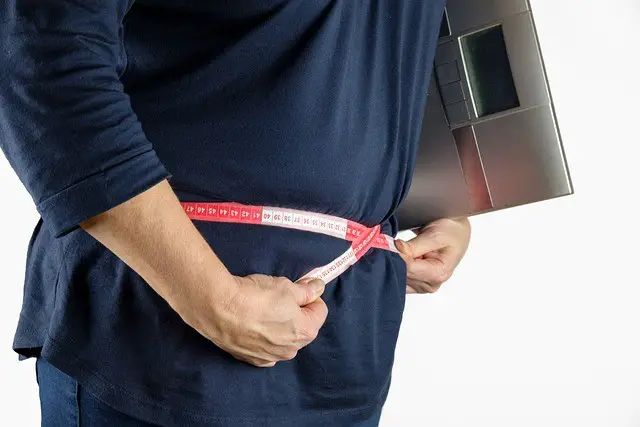
The healthiest amount of weight you can lose in a week is 1 to 2 pounds, and this is on a low-calorie diet and exercise. You can only lose this much weight if you undergo weight loss surgery. Rapid weight loss is unsafe so be careful of the ways you use to achieve your desired body weight.
How to Lose Weight Fast Naturally and Permanently
Besides dietary changes and exercise, there are a couple of things you can do to manage your weight naturally and maintain weight loss.
Mindful Eating
Refers to the state of being present while eating, that is taking note of your surrounding as you eat and how you are eating your food. Because of our busy lifestyle, we tend to take the saying to eat to live too literally! We eat because we have to, so we survive. But we’re missing the bigger picture, actively knowing what we are consuming.
Some ways you can practice mindful eating are:
- Intentionally choose healthier foods
- Avoid distractions when you’re eating
- Sit at a table when eating
- Eat slowly, not in a rush
Get Enough Sleep

Oversleeping for over 5 to 6 hours increase your risk of obesity and not getting enough sleep slows down metabolism, increasing fat storage. Furthermore, sleep restriction increases the production of insulin and cortisol, hormones that promote the storage of fats.
Stress Management

When you are stressed, your body releases adrenaline and cortisol, which first lowers your appetite. Maintaining stress levels for a longer time will make cortisol increase your appetite.
Research has shown that managing stress over long periods lowers BMI in overweight and obese children and adolescents.
There are several ways you can manage stress including:
- Enjoying the great outdoors
- Taking part in a hobby
- Seeing a therapist
- Breathing techniques
- Yoga
- Meditating
Take Away
The best fast weight loss program should be all-inclusive. It should focus on all aspects that can help contribute to weight loss, including your dietary choices, physical well-being, and mental status. The best is highly dependent on you because the success of your weight loss program is highly dependent on your choices.
Have you ever tried a commercial weight loss program? If yes, did you drop out before it ended, or were able to sustain it to the end? How effective was it? If not, would you consider a weight loss program?
I’m curious, which diet would you be interested in as part of your program? I know I’d go keto, you? Let me know in the comment section!
